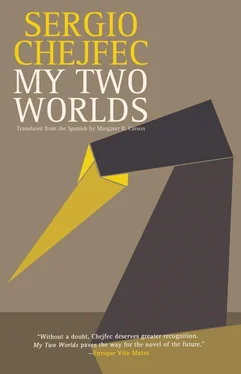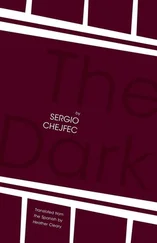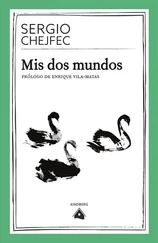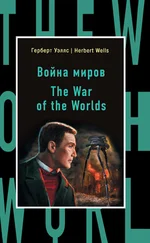On my walk at the book fair the night before, I only began to feel alarmed when I found myself, for the ninth or tenth time, in front of the booth for the local historical society. But what worried me wasn’t that on each new turn I felt the same innocence as I had initially, that is, an anxiety to discover an important book, one that perhaps I’d been dreaming of for years without realizing it, and that would allow me entrée to a rather difficult, half-guarded store of knowledge; no, what alarmed me instead was that the repetition I had yielded to no longer exasperated me. Even when I looked upward at the sky, seeking to find something simple and clear to dispel my confusion, I discovered, for the most part, columns of smoke that were rising quickly from the grills, and hardly anything else, nothing that could be found consoling or inspirational. Another booth that had by now become rather familiar to me belonged to the publishers’ association, as had one for a bookstore that offered an assortment of popular titles. I wanted to forget the reason I came to the city, and was even tempted by the idea of forgetting my own name and trying to be someone else, someone new.
That touched off a long train of thought not worth summarizing. I’ll only say that being someone else meant not so much a new beginning or a new personality, but rather a new world, I mean, that reality and all people in it would lose or cast aside their memory and admit me as a previously unknown member, a recent arrival, or as someone with no ostensible ties to the past. Later on, as I was saying, when the crowds began to tire me, I decided to get a map of the city as soon as I could, to see if it would confirm the existence of that great park, one that was fairly large and that would measure up to my expectations.
By that point I’d almost given up when a fairly obvious idea occurred to me, which under those circumstances seemed providential: it would be best to find my way through the streets by attending to the relative position of places, rather than plotting an exact path or following a sequence of street names. The streets drawn on the map showed routes that were not only impossible, but also unverifiable; on the other hand, the spatial organization of the area could hardly be wrong; it was, at most, approximate, which was, in any case, advantageous, and would save me from needlessly lengthening my journey. By then I was dragging my feet due to fatigue and the sensation of having paced up and down the streets of the city far too long, ever since I’d left the hotel in the early morning, when it was still cool. More than once, after walking along the same block two or three times — unintentionally of course, I’d done so because of chance and disorientation, or frankly, lack of interest — I’d been led again to the same block: and more than once I thought I’d seen looks of surprise, or maybe simple curiosity, at this outsider who was acting strangely and kept reappearing.
For me, wandering has become one of those addictions that can mean either ruin or salvation. I acquired the habit in childhood, when in the aftermath of an illness I stopped walking. I would sit in the doorway to watch the people and the cars pass by. At that time, using my legs had become a remote and elegant anatomical ability for which I was unprepared, who knows the obscure reasons why, a gift that enabled one to to cover distances. A year later, a new medical report authorized me to stand on my feet again, and to me it seemed that thanks to the word, I’d recovered a physical skill, as if a god had delegated part of his freedom to me. At that early age I could only go to the corner or around the block; but from then on, as successful people say, nothing could stop me. Even before I could understand it with any certainty, in all likelihood I sensed that the main argument in favor of walking was its pace; it was optimal for observation and thought, and furthermore, it was the corporeal experience with the best syntax to accompany one in life. But I’m afraid I can’t be sure.
It’s true that many things related to walking have changed, some of which I’ll refer to in a moment, but the same habit, which I’ve kept even in times of misfortunes or of ups and downs in general, supports the idea I have of myself as the eternal walker; it’s also what’s definitively saved me, in truth I don’t quite know from what, maybe from the danger of not being myself, something that tempts me more and more, as I said just now, because to walk is to enact the illusion of autonomy and above all the myth of authenticity. The actual habit itself thus helps to sustain that version, because as soon as I arrive in a city, the first decision I make is to go out; I want to become familiar with the surroundings, to permeate it by means of the simplest, handiest, and most convenient act, which is to walk.
As soon as I returned to the hotel, I asked for a map of the city at the reception desk. Given the late hour, and maybe because the staff had gotten in the habit of seeing me come and go all the time, greeting them at every turn and asking questions or making banal remarks, this request took them by surprise. And so I waited a good while, leaning my elbow on the counter. I can’t say I remembered ever having had a similar experience, because in truth I didn’t remember anything in particular. But I had the clear conviction that I’d been in that kind of situation before. Standing expectantly at hotel counters, the odd world, half-clandestine and half-disjointed, that one steps into while waiting for something at the reception desk. Suddenly a map was placed before me, the sort that folds eight or twelve ways and carries ads for important businesses. My first reaction was to look on the map for the green blotch. It didn’t take me long: I saw it whole, almost round, like a barely contained ink spill. I felt relieved to know I’d immerse myself in it the following day. After that I wanted to locate the hotel, something that took more time and that I finally managed to do, thanks to the help of a receptionist. Then I set about planning my walk, which in fact didn’t require much preparation; it was only a question of preparing myself mentally.
Though I’ve enjoyed long walks throughout my life, and continue to do so, to the point of feeling they’re an essential part of my true life, a habit without which I couldn’t recognize myself, for some time now walking has been losing its meaning, or at least its mystery, and sometimes all that’s left is my old enthusiasm, which usually dissipates within the half-hour like a wisp of smoke. I’ve often thought that the cities themselves are to blame. The visual and economic uniformity, the large chain stores, the transnational fashions and styles that relegate the unique to a secondary level, to a hazy background of faded colors. Finding distinctive features in the streets takes some doing; and even when I recognize them, it’s as if the local idiom had fallen silent and the signs of a practical and omnipresent language had been imposed, a well-known language, one that’s indistinct, even unnecessary, and lacking manners of its own.
But it’s also possible that I myself am to blame; for various reasons, when a certain moment arrives, I can only see what’s repeated. I’ve even begun to notice, to my own mortification, that the breath of adventure — or in any case, intrigue, which has always accompanied me on my endless excursions through the streets of every new or familiar city or locale I visit — gives way more and more often to tedium, short-lived interest, or straightaway to confusion. I walk blocks and blocks, I begin avidly and enthusiastically, that is, I observe everything, not letting the smallest details escape me, but little by little I’m invaded by a sense of lethargy and of surfeit in advance.
Читать дальше












